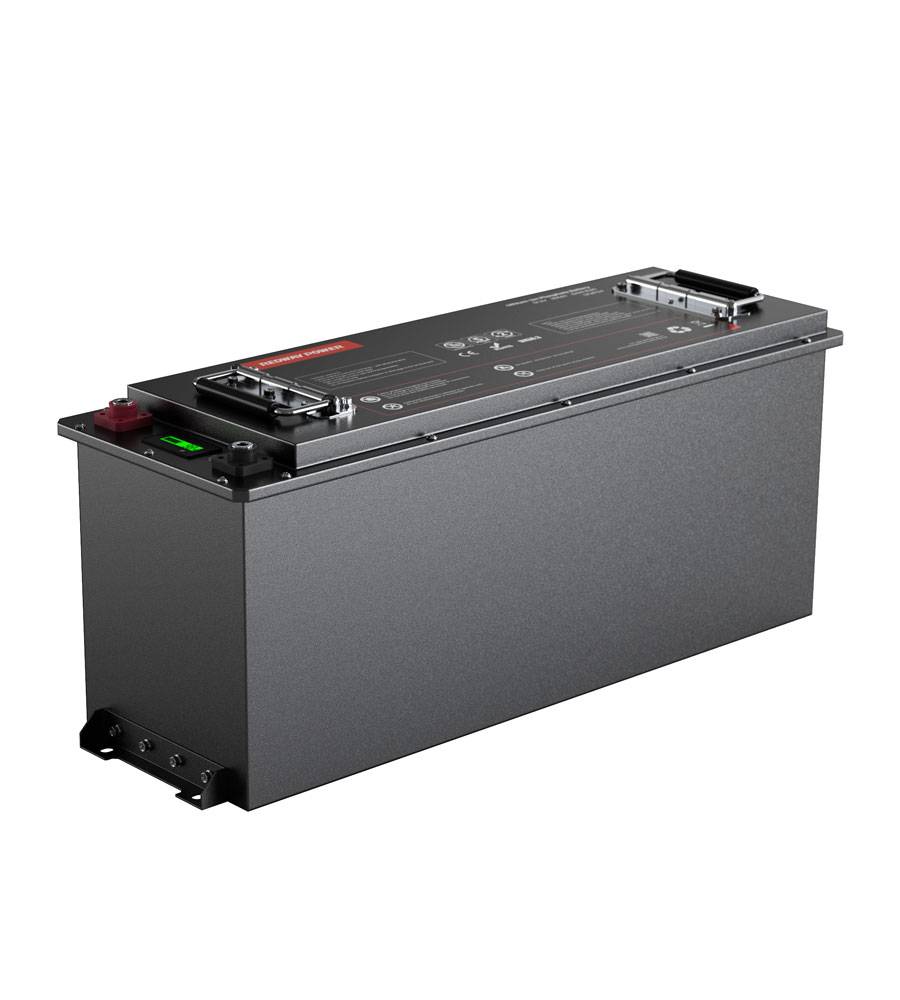-
Home
- About Liduo
- Product Center
- RV lithium battery
- Forklift lithium battery
- Wall mounted lithium battery
- Golf cart lithium battery
- Server rack battery
- lithium iron phosphate battery
- Solution
-
Portable battery
-
Power battery
-
Energy storage battery
-
Server battery
-
Special batteries
-
Household energy storage
- OEM Services
- R&D
- News

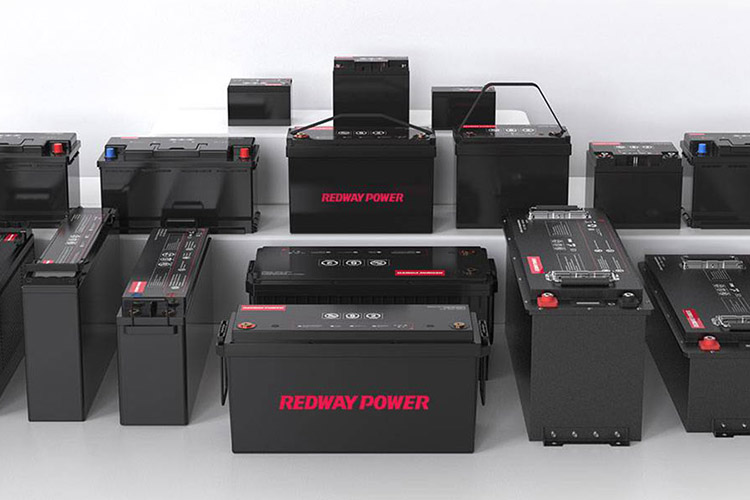 PRODUCT CENTER
PRODUCT CENTER48V (51.2V) 180Ah Lithium Battery
- Type:48V RV lithium battery
- Code:

-
Lithium battery Lithium iron phosphate (LFP)
Rated voltage 51.2V
Nominal capacity 10h
Nominal energy 5376Wh
Dimensions (L * W * H) 610 x 290 x 185 mm / 24.02 x 11.61 x 7.28 in
Weight 43 kg / 94.8 lb
IP level IP67 (More request)
- Product Description
This battery is the 48V (51.2V) 180Ah Lithium Battery from Redway Power, a leading manufacturer based in China that specializes in high-performance lithium-ion batteries. Utilizing advanced LiFePO4 technology, this battery provides exceptional energy solutions for various applications, ensuring reliability and longevity.
Key Features
- High Energy Capacity: With a nominal capacity of 184Ah and an energy output of 9,420Wh, this battery is ideal for powering demanding applications.
- Long Cycle Life: Designed to endure over 4,000 cycles at 80% depth of discharge (DOD), significantly reducing the need for frequent replacements.
- Durable Design: The battery features an IP65 rating, ensuring protection against dust and water ingress, making it suitable for challenging environments.
- Intelligent Battery Management System (BMS): Equipped with a sophisticated BMS that protects against overcharging, overheating, and short circuits, ensuring safe operation.
- Customizable Options: As an OEM provider, Redway Power offers tailored solutions to meet specific customer requirements, including dimensions and additional functionalities.
Applications
The 48V (51.2V) 180Ah Lithium Battery is perfect for a variety of applications, including:
- Electric scooters
- E-rickshaws and e-trishaws
- E-motorcycles
- Automated Guided Vehicles (AGVs)
- Renewable energy storage systems
With a charge voltage of 58.4V and a discharge voltage of 40V, this battery is optimized for various operational needs. It operates effectively across a temperature range from -20°C to 65°C, making it versatile enough for different industrial settings.The lightweight design of the battery facilitates easy installation and integration into existing systems while ensuring that your equipment operates efficiently throughout the day. Additionally, the battery supports fast charging capabilities, allowing for quicker turnaround times between uses.
As a trusted factory in China, Redway Power is dedicated to delivering high-quality lithium-ion batteries that enhance productivity and sustainability in your operations. The 48V (51.2V) 180Ah Lithium Battery not only reduces downtime but also contributes to lower operational costs due to its efficiency and long lifespan.Investing in this battery means choosing a reliable power solution that meets the demands of modern electric vehicles and industrial applications while supporting your business’s growth and sustainability goals. Choose Redway Power for your lithium battery needs and experience unparalleled performance and service.
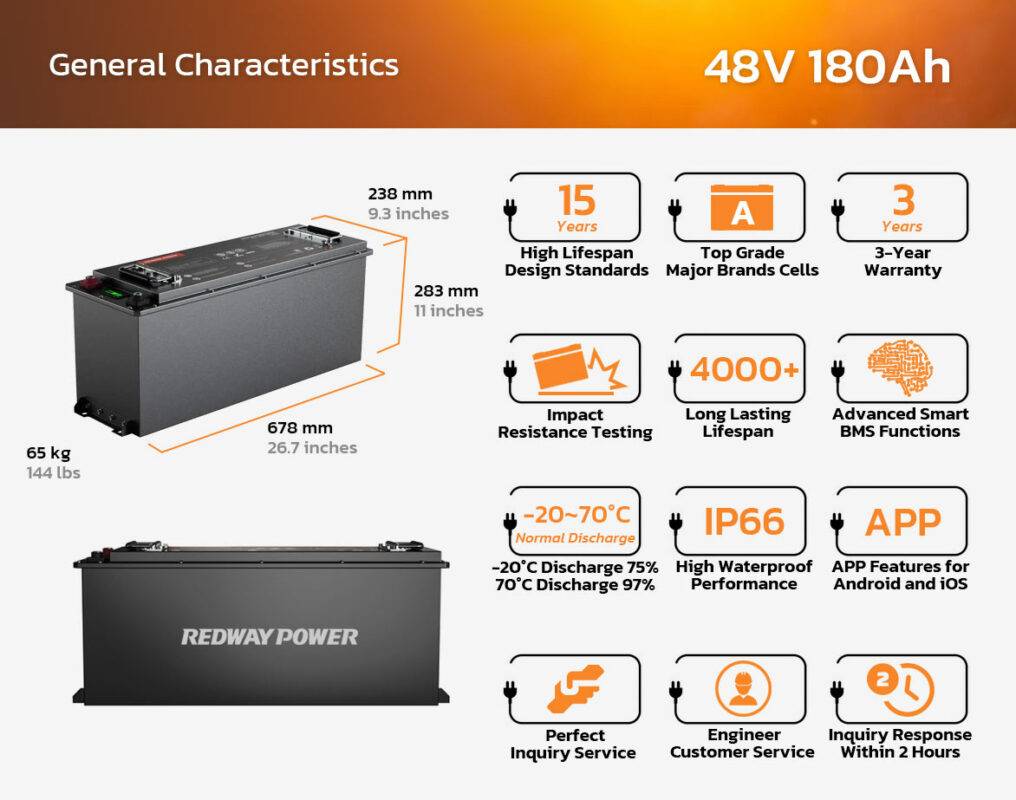
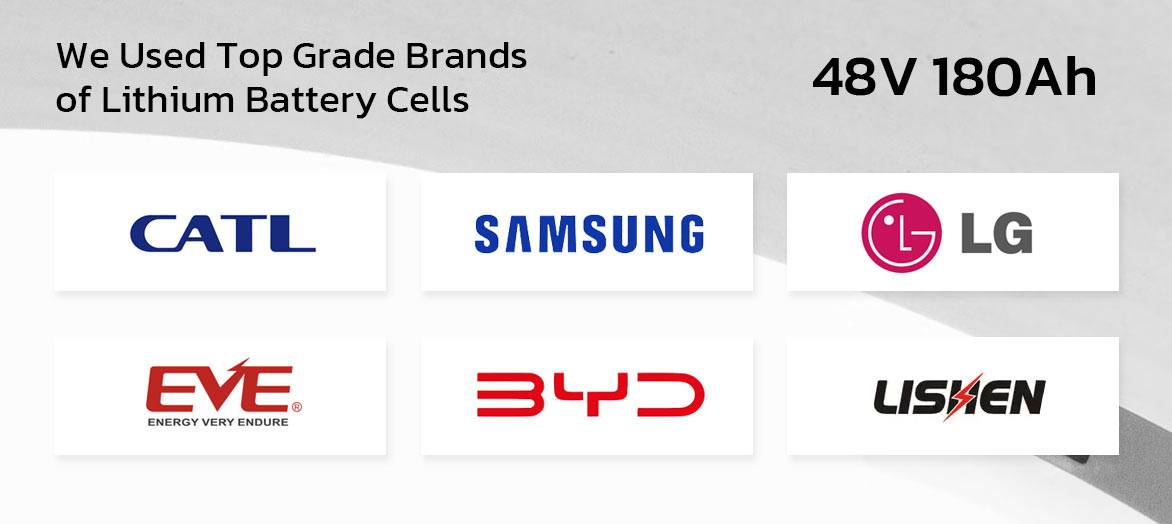
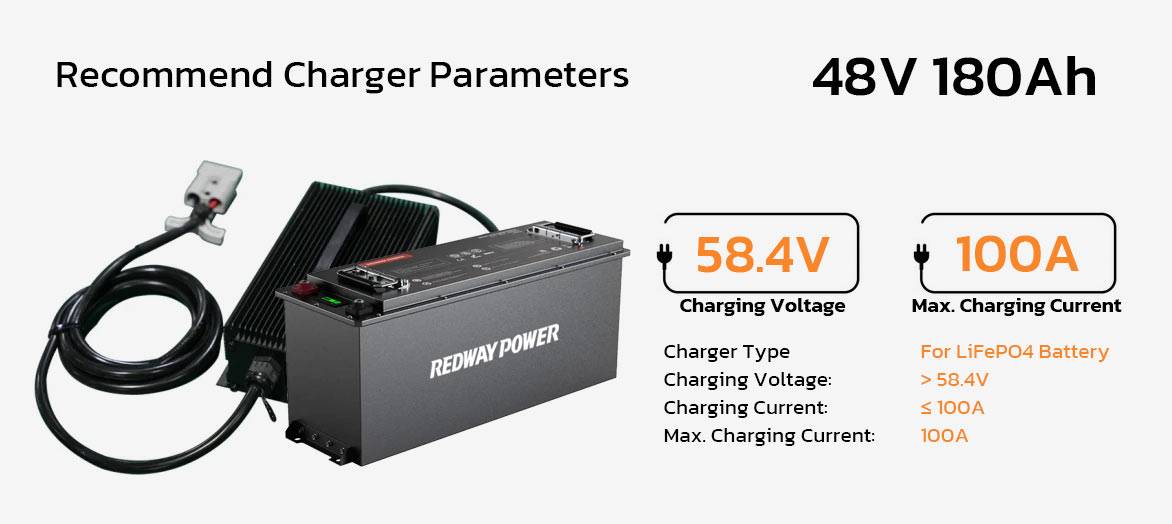
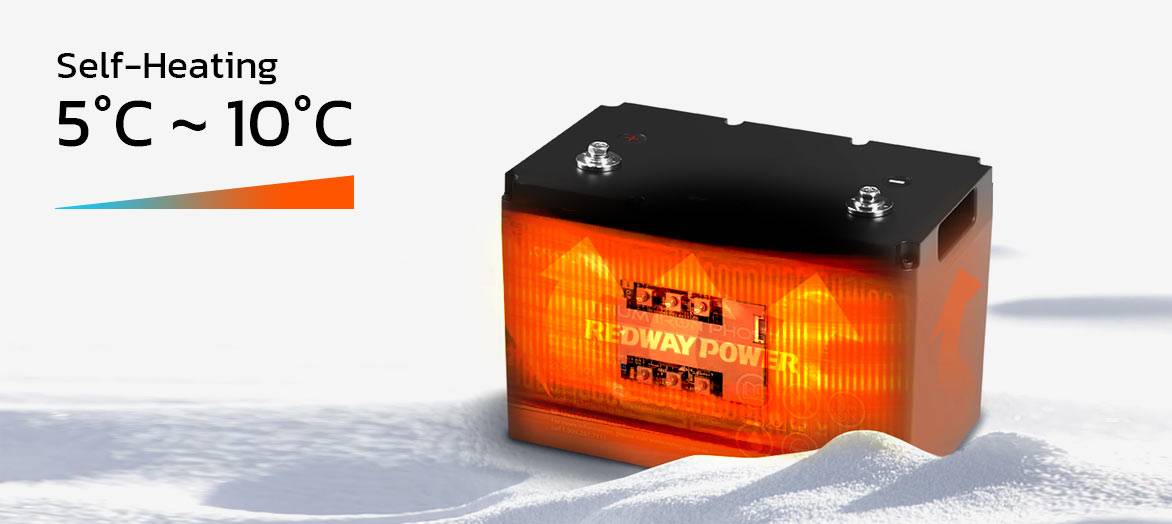
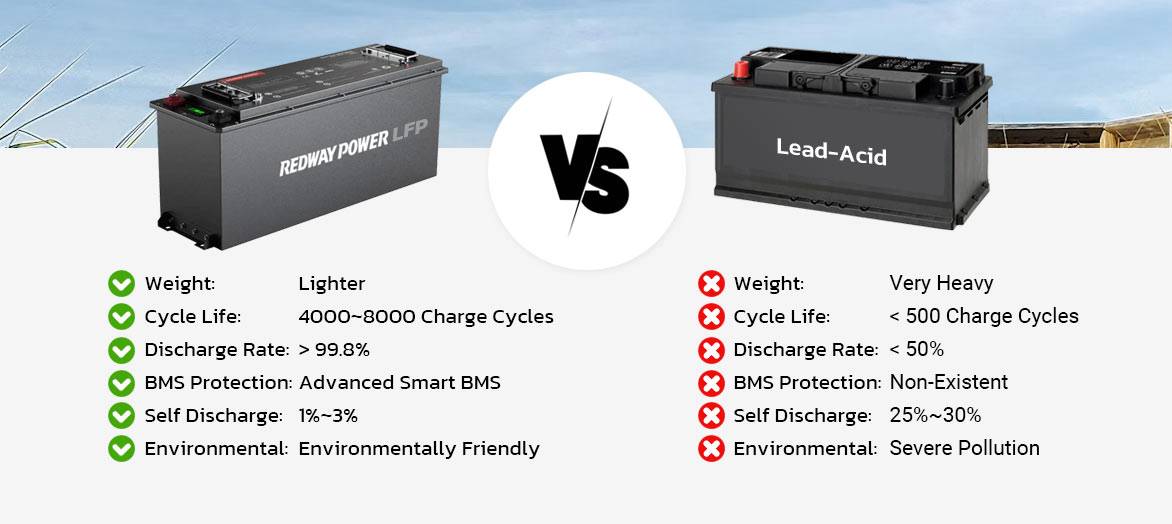

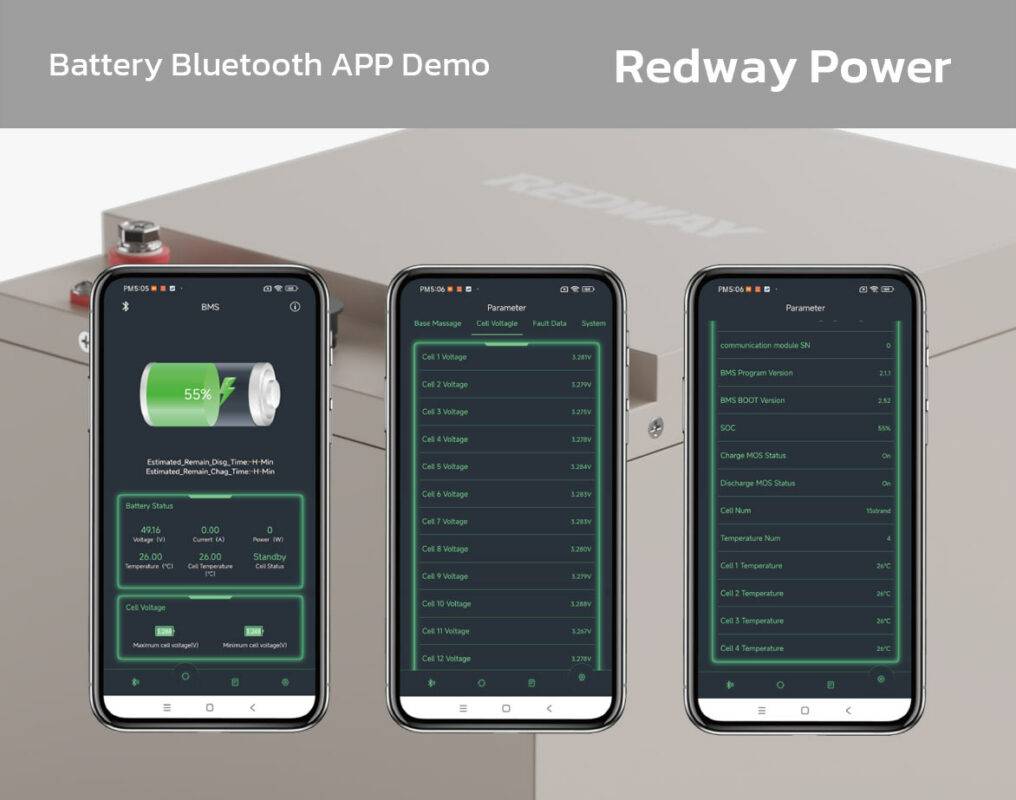
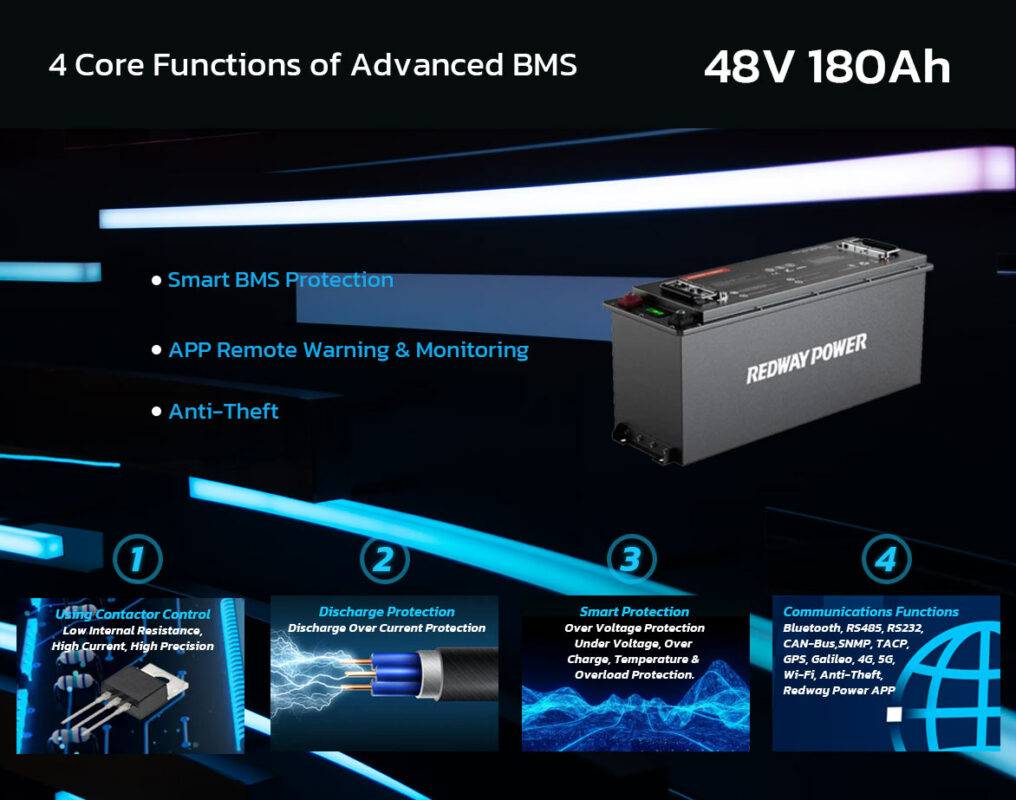
48V180Ah Specifications Cell Type LiFePO4 Nominal Voltage 48V (51.2V) Nominal Capacity 184Ah Nominal Energy 9420Wh Charge Voltage 58.4V Discharge Voltage 40V Max. Continues Charge Current 50A Max. Continues Discharge Current 50A Dimensions
[L x W x H]678 x 238 x 283 mm
26.7 x 9.3 x 11.1 inWeight 65.5 kg
144.4 lbIP Rating IP65 (More request) Series & Parallel 16S1P Max. Battery Parallel 4P to 37.68kWh (More request) Internal Resistance ≤30mΩ Cycle Life >4000 cycles (DOD 80%) Self-Discharge 3% (Per month) Charge Temperature 0°C ~ 60°C
32°F ~ 140°FDischarge Temperature -20°C ~ 65°C
-4°F ~ 149°FLCD Screen Yes Optional Functions Bluetooth / WiFi / LED Touch Screen / RS485 / RS232 / CAN / 4G, 5G / GPS / APP Charger High current fast charger BMS Intelligent BMS protection Terminal M8 Bolts Battery Case ABS (Fireproof plastic) Warranty 3 Years Silk-Screen / Label Printing Yes User Manual / Warranty Card Yes Customization / OEM / ODM Yes Shipment Yes Certifications IEC, UN38.3, MSDS (More request) The 48V 180Ah LiFePO4 batteries, housed in a metal casing, offer a significant improvement over typical deep cycle batteries. Their versatility makes them suitable for a range of purposes, including home security, outdoor expeditions, and solar-powered lighting. In contrast to standard sealed lead-acid (SLA) alternatives that usually provide only 500 cycles, these lithium iron phosphate batteries can withstand up to 4000 cycles. This impressive longevity results in a significantly lower cost per use compared to traditional batteries.
What is a 48V 180Ah lithium battery (metal shell)?
A 48V 180Ah lithium battery with a metal shell is a rechargeable energy storage device designed for various applications requiring reliable and long-lasting power sources. It operates at a voltage of 48 volts and has a capacity of 180 ampere-hours (Ah), offering substantial energy storage for extended usage periods. The metal shell provides protection to the battery cells and enhances durability, making it suitable for demanding environments and applications.
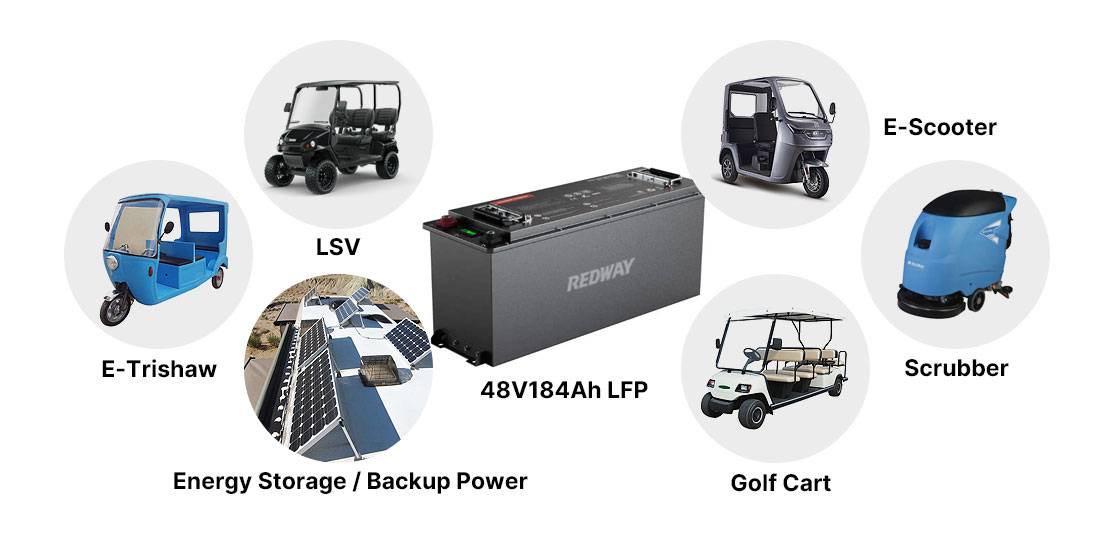
- Renewable Energy Systems: Used in off-grid and hybrid solar power systems to store excess energy generated by solar panels for later use, ensuring continuous power supply.
- Electric Vehicles: Employed in electric vehicles (EVs), including cars, buses, and scooters, as a high-capacity battery pack for propulsion, offering extended driving range and performance.
- Marine Applications: Installed in boats, yachts, and marine vessels to power onboard electronics, navigation systems, and auxiliary equipment, providing reliable energy for extended periods.
- Telecommunications: Utilized as backup power for telecommunications infrastructure, including cell towers and communication hubs, ensuring uninterrupted connectivity during power outages.
- Industrial Equipment: Integrated into industrial machinery, equipment, and backup systems to provide reliable power supply, supporting uninterrupted operations in manufacturing and production facilities.
- Emergency Backup Power: Deployed in critical facilities such as hospitals, data centers, and emergency response centers to provide backup power during grid failures or emergencies, ensuring continuous operation of essential services.
- Residential Energy Storage: Installed in homes and residential buildings as part of energy storage systems to store surplus energy from the grid or renewable sources, optimizing energy usage and providing backup power during outages.
- Commercial Applications: Used in commercial establishments, including hotels, restaurants, and retail stores, for backup power, energy storage, and load shifting to reduce electricity costs and enhance energy efficiency.
Overall, the 48V 180Ah lithium battery serves as a reliable and versatile energy storage solution across a wide range of applications, providing efficient power supply and enhancing energy resilience.
What are the advantages of a 48V 180Ah lithium-ion battery (metal shell)?
The advantages of a 48V 180Ah lithium-ion battery with a metal shell include:
- Enhanced Protection: The metal shell provides robust protection against physical damage, moisture, and environmental factors, ensuring the battery's safety and longevity.
- Efficient Heat Dissipation: Metal shells have good heat dissipation properties, effectively dispersing heat generated during battery operation, preventing overheating, and maintaining optimal performance.
- Durability: Metal shells are sturdy and resilient, offering resistance to impact and vibration, making them suitable for demanding applications or harsh environments.
- Safety: The metal shell adds an extra layer of protection against external hazards and potential punctures, reducing the risk of short circuits or leakage, and ensuring a safer operating environment.
Overall, a 48V 180Ah lithium-ion battery with a metal shell provides reliable protection, efficient heat dissipation, durability, and safety, making it an optimal choice for various industrial, commercial, and residential applications.
What are the disadvantages of a 48V 180Ah lithium battery (metal shell)?
The disadvantages of a 48V 180Ah lithium battery with a metal shell are:
- Weight: Metal shells can add weight to the battery, making it heavier and potentially less portable compared to batteries with lighter casing materials.
- Cost: The manufacturing process for metal shells may increase the overall cost of the battery, making it more expensive compared to batteries with alternative casing materials.
- Corrosion: If the metal shell is not properly treated or maintained, it may be susceptible to corrosion over time, potentially compromising the integrity of the battery casing.
- Thermal Conductivity: While metal shells offer good heat dissipation, they may also conduct heat, which could lead to thermal issues if the battery operates in extremely hot environments.
Overall, while a 48V 180Ah lithium battery with a metal shell offers various advantages, it's essential to consider these potential disadvantages when selecting the appropriate battery for specific applications.
How long will a 48V 180Ah battery (metal shell) last if fully charged?
The lifespan of a fully charged 48V 180Ah lithium battery with a metal shell depends on several factors, including the discharge rate, depth of discharge, and environmental conditions.
Assuming ideal conditions and a constant discharge rate, you can estimate the battery's runtime by dividing its capacity (180Ah) by the load's current draw (in amperes). For example, if the load draws 10 amperes, the battery would last approximately 18.4 hours (184Ah ÷ 10A = 18.4 hours).
However, actual runtime may vary based on factors such as temperature, age, and depth of discharge. It's crucial to monitor and manage these variables for accurate estimation and optimal battery performance over its lifespan.
48V 180Ah lithium battery vs lead-acid battery, which is better?
Comparing a 48V 180Ah lithium battery with a lead-acid battery involves several factors:
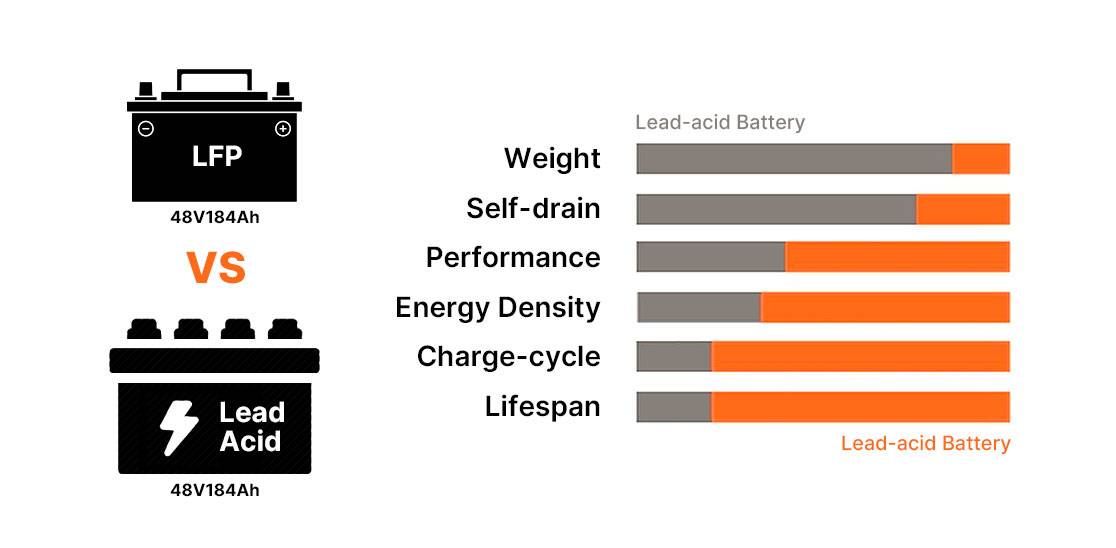
- Performance: Lithium batteries typically offer higher energy density, longer cycle life, and faster charging compared to lead-acid batteries, ensuring consistent power output over the discharge cycle.
- Weight and Size: Lithium batteries are lighter and more compact than lead-acid batteries, making them ideal for applications where space and weight are critical factors.
- Cost: While lithium batteries have a higher upfront cost, they often offer better long-term value due to their extended lifespan and lower maintenance requirements compared to lead-acid batteries.
- Safety: Lead-acid batteries are generally considered safer and more stable than lithium batteries, which can be prone to thermal runaway and fire if mishandled or damaged.
- Environmental Impact: Lead-acid batteries pose greater environmental harm due to their toxic materials and require specialized recycling processes. In contrast, lithium batteries have a lower overall environmental impact.
- Longevity: Lithium batteries offer a longer cycle life, with up to 4000 cycles compared to lead-acid batteries' maximum of 500 cycles. Despite the initial expense, lithium batteries provide higher depth of discharge and durability, ensuring a longer lifespan and safer usage.
Considering these factors, for applications where high performance, energy efficiency, and longevity are crucial, a 48V 180Ah lithium battery would generally be considered the better option. However, specific requirements and budget constraints may influence the choice between lithium and lead-acid batteries.
What quality standards does Redway Power apply to 48V 180Ah (184Ah) lithium battery?
Redway Power applies stringent quality standards to its 48V 180Ah lithium battery, ensuring reliability and safety:
- Adherence to International Standards: Redway Power ensures compliance with ISO 9001 for quality management systems and ISO 14001 for environmental management during manufacturing.
- Certifications for Safety and Compliance: The company obtains certifications like UL (Underwriters Laboratories) or CE (Conformité Européenne) to demonstrate adherence to safety and product standards.
- Rigorous Testing Procedures: Batteries undergo thorough testing, including the IEC 62133 test, to verify safety and prevent short-circuiting.
- Stringent Manufacturing Processes: Redway Power implements strict manufacturing processes to maintain consistency and quality throughout battery production.
- Comprehensive Quality Control Measures: The company employs extensive quality control measures to monitor and ensure battery quality and performance at every stage of production.
Adhering to these standards ensures that the 48V 180Ah lithium battery meets industry and regulatory requirements, guaranteeing reliable performance and safety for users.
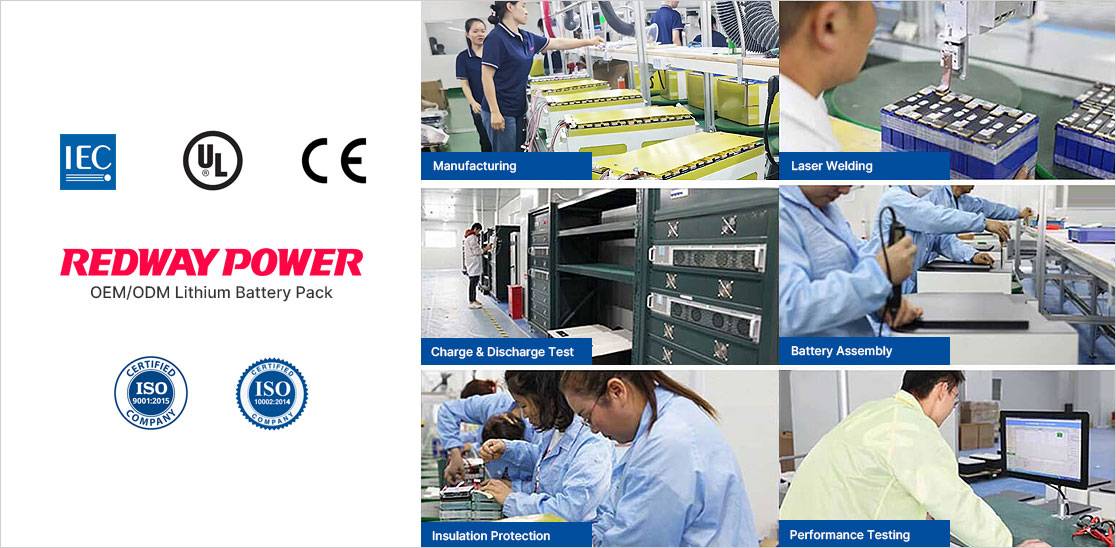
Is it safer to use a 48V 180Ah lithium-ion battery?
Using a 48V 180Ah lithium-ion battery can indeed be considered safer compared to traditional lead-acid batteries for several reasons:
- Chemical Stability: Lithium-ion batteries are chemically stable and less likely to leak or spill acid, reducing the risk of chemical exposure and environmental contamination.
- Lower Risk of Overcharging: Lithium-ion batteries come with built-in protection circuits that help prevent overcharging, thereby reducing the risk of thermal runaway and fire.
- Lightweight Construction: Lithium-ion batteries are lighter than lead-acid batteries, making them easier to handle and transport. This reduces the risk of accidents during installation or maintenance.
- Reduced Maintenance: Lithium-ion batteries require minimal maintenance compared to lead-acid batteries. They don't need periodic water refilling or equalization charging, reducing the risk of human error and potential accidents.
- Efficient Cooling: Lithium-ion batteries generally dissipate heat more efficiently than lead-acid batteries, lowering the risk of overheating and thermal runaway.
While lithium-ion batteries offer these safety advantages, it's crucial to follow proper handling, storage, and charging procedures to minimize risks further. Additionally, selecting batteries from reputable manufacturers with stringent quality control measures can enhance overall safety.
What are the features of a 48V 180Ah lithium-ion battery (metal shell)?
Encased in a durable metal shell, this 48V 180Ah lithium-ion battery boasts impressive features suitable for a variety of applications. Its high energy density enables greater storage capacity despite its compact and lightweight design, differentiating it from traditional lead-acid batteries. With extended cycle life, the battery maintains reliable performance after repeated charge and discharge cycles without significant capacity loss. Furthermore, these lithium-ion batteries offer efficient charging, minimal self-discharge, and low maintenance requirements, making them a practical and economical power source.
What are the specifications of a 48V 180Ah lithium-ion battery?
The standard requirements for a 48V 180Ah lithium-ion battery typically consist of its 48-volt voltage rating and 180 ampere-hour (Ah) capacity. Other vital factors could encompass dimensions, weight, maximum discharge current, operational temperature range, anticipated cycle life, and safety attributes such as built-in protection circuits. These specifications may differ from one producer to another and serve various purposes, highlighting the significance of consulting the datasheet or product specifications to guarantee compatibility and achieve optimum performance.
How to maintain a 48V 180Ah lithium-ion battery?
Maintaining a 48V 180Ah lithium-ion battery involves several key practices to ensure optimal performance and longevity:
- Charge Regularly: Lithium-ion batteries perform best when they are regularly charged and discharged. Avoid leaving the battery in a fully discharged state for extended periods, as this can lead to capacity loss.
- Use Correct Charger: Always use a charger specifically designed for lithium-ion batteries and follow the manufacturer's recommendations for charging voltage and current. Avoid using incompatible chargers, as they can damage the battery.
- Avoid Overcharging: Do not leave the battery connected to the charger once it is fully charged. Overcharging can degrade battery performance and shorten its lifespan. Use chargers with built-in protection against overcharging.
- Temperature Control: Avoid exposing the battery to extreme temperatures, both high and low, as it can affect its performance and lifespan. Store and operate the battery within the recommended temperature range specified by the manufacturer.
- Regular Inspection: Periodically inspect the battery for signs of physical damage, such as dents, leaks, or swelling. If any abnormalities are observed, discontinue use immediately and consult the manufacturer for guidance.
- Proper Handling: Handle the battery with care and avoid dropping or subjecting it to mechanical shocks. Secure the battery properly during transportation to prevent damage.
- Storage: If storing the battery for an extended period, ensure it is stored in a cool, dry place with a moderate temperature. Ideally, store the battery at a partial state of charge (around 50%) to minimize stress on the cells.
- Firmware Updates: Some lithium-ion batteries may have firmware that requires periodic updates. Follow the manufacturer's instructions for updating the battery firmware to ensure optimal performance and compatibility with charging systems.
By following these maintenance practices, you can maximize the lifespan and performance of your 48V 180Ah lithium-ion battery. Regular care and attention will help ensure reliable operation and safety over the battery's lifespan.
What are the do's and don'ts associated with handling and using LiFePO4 cells?
Do's:
- Use cells within their specified voltage and current ranges.
- Employ a proper Battery Management System (BMS) to protect against overcharging and over-discharging.
- Handle cells with care and use appropriate personal protective equipment (PPE).
Don'ts:
- Avoid physical damage or puncturing, which can lead to cell failure.
- Do not expose cells to extreme temperatures or direct sunlight.
- Never mix different cell types or brands in a battery pack.
What pre-installation checks and steps are recommended before using LiFePO4 cells?
- Verify that the cells match the required specifications for voltage, capacity, and current.
- Ensure the cells are compatible with your BMS.
- Inspect for any physical damage or defects before installation.
- Confirm proper balance of the cells if they are used in a pack.
- Follow manufacturer guidelines for installation and setup.
What are the important notes to consider before purchasing LiFePO4 cells?
- Check the manufacturer's reputation and warranty conditions.
- Ensure the cells have a reliable BMS included or compatible with your existing system.
- Consider the cells’ cycle life and performance specifications to meet your needs.
- Verify compatibility with your intended application (e.g., voltage, capacity).
- Compare the cost with other battery technologies to ensure cost-effectiveness.
-
About Us
Company Profile History Organizational Honor -
Product Center
Forklift lithium battery Rv lithium battery Wall-mounted lithium battery Golf cart lithium battery -
Solution
Energy storage battery Power battery Server battery -
Know us
News center Contact us -
Contact us
0769-89333805 No. 78, Puxing East Road, Qingxi Town, Dongguan City mg@redwaycn.com
Copyright 2025 Dongguan Liduowei new energy Co., LTDTechnical support:Emore - About Liduo

